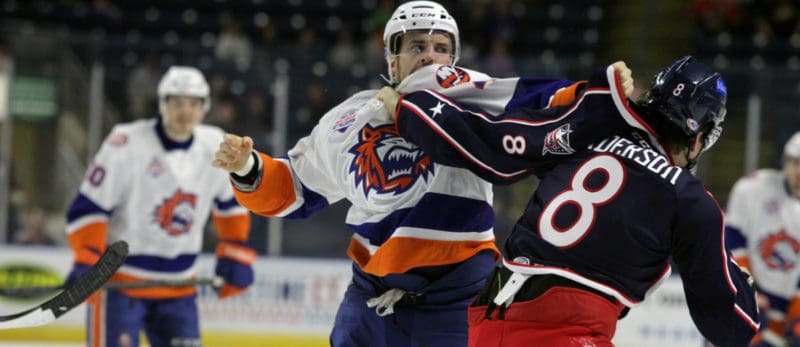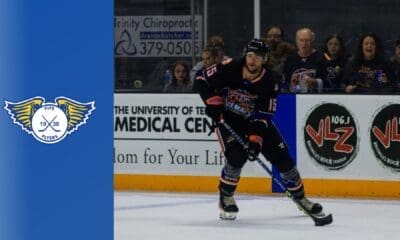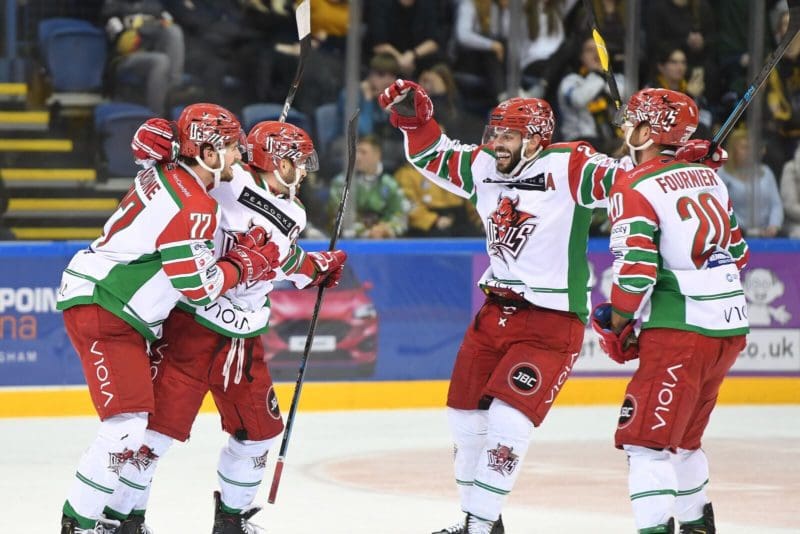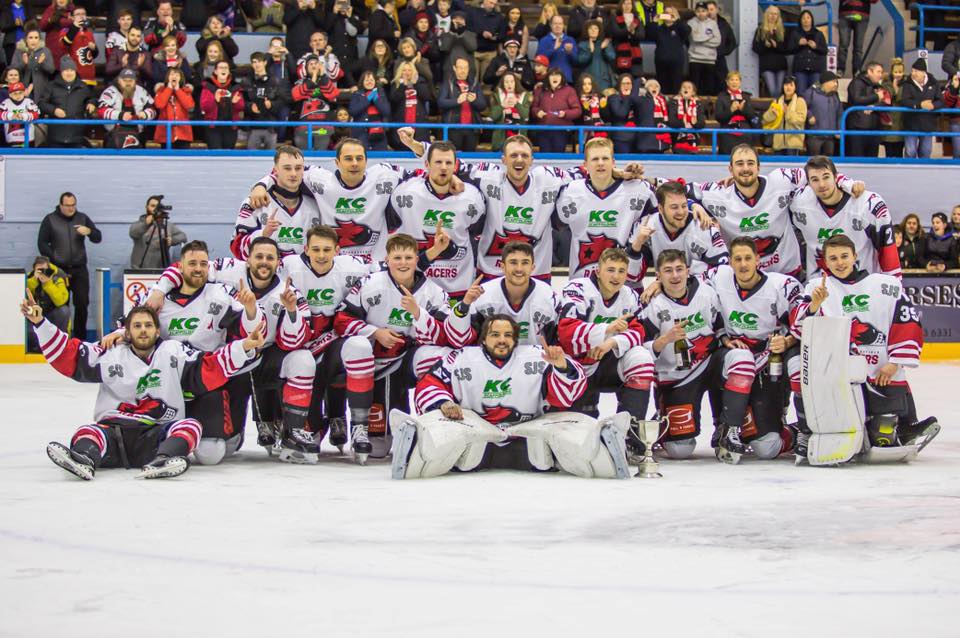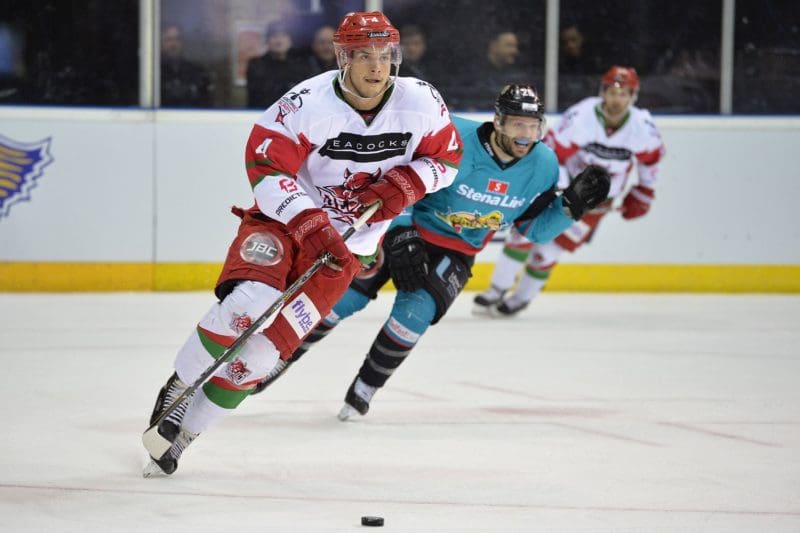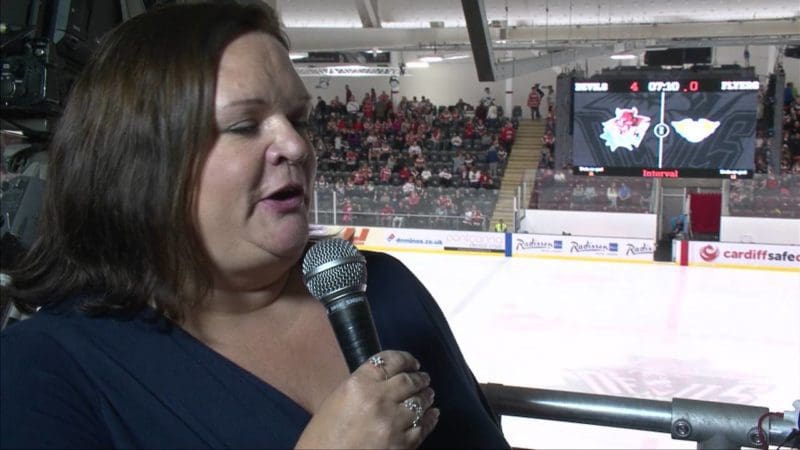
A leading expert in violence in ice hockey believes the Elite League and DOPS should be more open with communications after another controversial week for the disciplinary system.
Dr Victoria Silverwood, who has researched the more dangerous aspects of the sport, has spoken out after the incident that saw Cardiff’s Masi Marjamaki appear to catch Belfast’s David Goodwin with a check to the head in Sunday’s game between the sides.
And Dr Silverwood, who is a lecturer in criminology and completed a PhD in “Five for Fighting: The Culture and Practice of Legitimised Violence in Professional Ice Hockey”, believes the hit should have been worthy of supplemental punishment.
“Llike many people I didn’t see the game live so can only comment on the video footage I’ve seen since the event,” she said. “Seeing the incident as part of a whole game may change how it appears somewhat, but it certainly looks like something I would expect DOPS to investigate”
“I did a bit of research into the background of it and saw it was punished in the game by the referee and also knew it will be looked at by DOPS due to the penalty given.
“For me, it didn’t look like the hit was intentionally aimed at the head, but it did connect with the head and for me those penalties always need specific investigation.
“An unintentional hit to the head is still a hit to the head and can have grave impacts for player safety. I wouldn’t have been surprised if a short suspension had been adjudicated by DOPS for the incident. Players need to be conscious of their responsibility to protect their heads and those of their opponents.“
“More communication from the league and DOPS would certainly prevent all the speculation and make it clear things have been looked at rather than give the impression that things are still ongoing because people never know if it has been completed.
“I appreciate they don’t have resources, like a full team of people to review every incident and what any additional penalty, but it wouldn’t be that difficult to write a tweet or a small paragraph that says all game penalties have been reviewed and there’s no further action.
“To do that, people are aware of what’s going on and that should always be the bare minimum to help the fans informed.”
Dr Silverwood has often spoken out about the league’s disciplinary process and how it’s run as an advocate of player safety in ice hockey.
Her expertise has seen her work with players to understand any long term effects violence would have on them in the long term and believes there’s always more than can be done to help achieve this.
Didn’t watch the game but that’s a hit they’ll look at for supplementary discipline for sure. Reckless and disrespectful. You only get one brain guys, look out for each other’s.
— Dr Victoria Silverwood (@SilverwoodVS) February 4, 2020
She believes it’s difficult to know if the decrease in checks to the head in the Elite League has come about because players are more responsible, but doesn’t believe the department’s title is focussed on the very thing it’s named for.
Dr Silverwood added: “It’s difficult to judge whether players are being more responsible than they were a few years ago, but compared to other leagues, we’re calling less of those kind of penalties.
“In terms of DOPS, by entitling it ‘Player Safety’, I’d love to see it where it actually deals with Player Safety instead of a punitive punishment for a player for doing something wrong and focussing on the long term safety of the players involved.
“It definitely falls far short of what it could be and I’ve been pretty vocal in the past about it. Even though we are reassured they’re putting in new efforts, a multi-national panel with people involved with the new review incident room for each game, people are still unsure and they need to be clearer on what they’re doing.
“It could well be very effective and perhaps more forthright, but unless it’s clear to people, particularly players themselves predominantly, but also people who for the clubs and the fan themselves, they have to be more transparent on the purpose of DOPS, what they’re doing and how they’re doing it.
“That way, it prevents these outcries where people feel they’ve been wronged, which then goes back to the ice and some form of retaliation, which isn’t good for anybody.”

